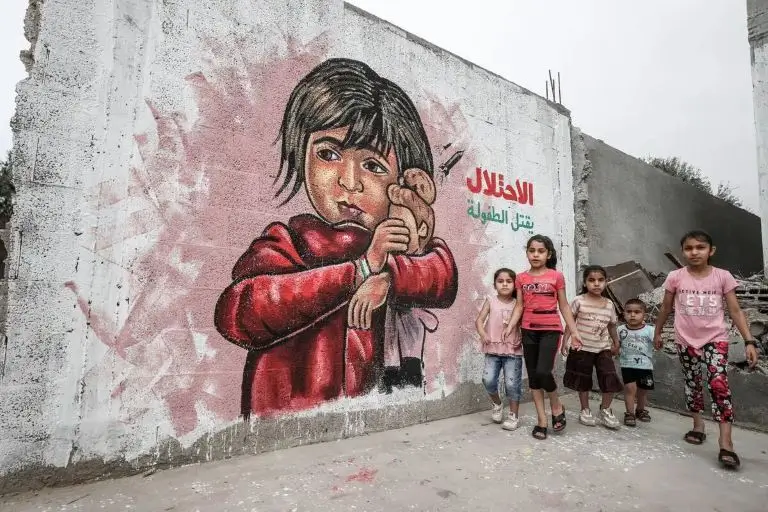The term “genocide” was first used in 1944 by Polish Jewish lawyer Raphael Lemkin to characterize the systematic destruction of national and ethnic groups by Nazi policies, which included the mass murder of European Jews. According to Lemkin, genocide is “a coordinated plan of different actions aiming at the destruction of essential foundations of the lives of national groups, with the aim of annihilating the groups themselves.” The International Military Tribunal at Nuremberg indicted leading Nazis in 1945 for “crimes against humanity,” using the term “genocide” only as a descriptive term, not a legal term in the indictment. The 1948 United Nations Genocide Convention provided a legal definition of genocide: “Acts committed with the intent to destroy, in whole or in part, a national, ethnic, racial, or religious group.”
Why is genocide so important to know? Let me explain how genocide psychologically impacts survivors. This is very important for you to understand. The trauma that genocide survivors experience is not limited to them; it also affects their offspring and future generations. Future generations’ lives will be impacted by the trauma left over from the genocide, which still hurts our generation.
Impact on Post-Conflict Generations
Even among those who are not directly related but share the same survivor group, trauma can spread through survivor narratives. As the unwillingness to talk honestly about traumatic experiences becomes a form of communication, silence also plays a significant role in the spread of trauma. Survivors may choose to express their trauma through actions and behaviors rather than through overt verbal communication because they feel compelled to shield future generations from the atrocities of the past. Is it so difficult for them to move past the genocide? For that reason, they have a symbolic scar from birth. They are unable to comprehend or even explain the ways in which the psychological effects of the genocide continue to influence their generation. Though they frequently ignore the psychological effects of this severe trauma, they keep repeating historical details.
Millions of children are disabled, homeless, orphaned, or have been separated from their parents because of the widespread destruction wrought by armed conflicts in societies. Children’s well-being is severely and permanently impacted by conflict, which emphasizes how urgently these affected areas need humanitarian assistance and intervention. In addition to the direct effects of war, exposure to violence has indirect effects on survivors as well, which can exacerbate depression and PTSD. Violent conflict upends lives and destroys social networks, which are essential for managing stress.
Mental Health Issues Faced Among Children
The relationship between exposure to violence and mental health is mediated by everyday stressors that are made worse by war-related disruptions such as destroyed homes and communities, economic collapse, and isolation from necessary services. The social ecology model of child development emphasizes the need to address both direct and secondary adversities resulting from war and genocide by highlighting how these disruptions increase the risk of poor mental health outcomes, such as depression and PTSD.
There have been numerous similar attacks throughout history, including the one that is currently occurring in Gaza. Millions of children are enduring a plethora of signs and symptoms of trauma under the current circumstances, such as insomnia, bottled-up emotions, nightmares and disturbing memories, anxiety, fear, and withdrawal from loved ones. These challenges are faced whenever a child grows up.
According to researchers, children’s mental health and development are severely and permanently impacted by the cumulative trauma of ongoing ethnic-political violence, which also has an impact on how they function and view the world as young adults. According to studies, unless they are given the opportunity to heal, even young people who appear to have become desensitized to the violence around them still bear lasting scars.
It is concerning to consider the long-term effects of this merciless, continuous terrorizing, traumatizing, and victimizing of the youth. Whatever the survivors may be, many of them will grow up to be depressed, afraid, guilty, angry, alienated, and seeking retribution. They’ll want to know who killed their parents, friends, and siblings, and why they did it. They’ll want to know how the killing was stopped by the outside world. They will demand justice, their memories of blood and tears haunting them. And some people, like many others in the past, might decide to handle things themselves, wherever they can.
There are no satisfactory answers to their inquiries. We are all aware of how completely immoral what is happening is. Attitudes and perspectives are significantly shaped by education. Through the presentation of survivor narratives and the psychological impact of genocide on students, we foster compassion and empathy. A generation that is not only aware of the extent of human suffering but also actively involved in stopping the recurrence of such crimes is inspired by this realization, which serves as a catalyst for societal change.
Genocide is frequently hidden from public view, and its psychological effects are rarely discussed. Incorporating instruction that tackles these mental health issues breaks the taboo and promotes candid communication. Students take up awareness campaigns, questioning social norms, and creating a safe space for survivors to tell their stories without feeling judged or afraid. Educational initiatives extend beyond classrooms, reaching into communities affected by genocide. Workshops, seminars, and community programs create spaces for dialogue, healing, and the dissemination of psychological support resources. Education becomes a powerful tool for dismantling the barriers that isolate survivors and their families.
With this more comprehensive approach, education becomes a powerful tool for tearing down the walls separating survivors and their families. Educational initiatives create a collective force that actively contributes to the healing process by fostering understanding, resilience, and connections. Education serves as a bridge between people and communities by bringing attention to the trauma of genocide and providing a shared path towards empathy, awareness, and a better future.
